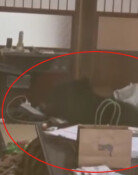Univ. `Free Majors` Suffering From Lack of Identity
Univ. `Free Majors` Suffering From Lack of Identity
Posted May. 04, 2009 07:56,
Top-ranked universities have raced to set up free major departments for the 2009 scholastic year, but students who have spent two months as free majors say they have no sense of identity.
These students have many reasons for their complaints. Some say they entered the department believing they could change their majors in their sophomore or junior years, and others say they feel dependent because they study at the buildings of other colleges due to lack of infrastructure.
Still, others complain of isolation in school and club life because they have no upperclassmen in their major.
Students at Korea University`s free major department asked their school last month to allow students to change their affiliations to departments and colleges of their choice when they pick majors.
The university effectively declined the request, however, saying, "No provisions in admissions rules allow free major students to change their affiliations."
A freshman who signed up for a free major course at Korea University this year after attending another school last year, said, "When I consulted with the university about admissions, the university said a free major student can change the affiliation to the major that I choose, and I thought my major department would change naturally.
I feel nervous that only we free major students have to graduate from university with unspecified majors, while students of other majors seek multiple majors with names such as main and sub-majors."
Park, a freshman at Yonsei University`s free major department, said he felt frustrated as he took the mid-term exam. Because he did not have fewer required classes to choose from than students of other majors, he chose liberal arts classes randomly without serious thought.
"I feel regret not having any upperclassmen that underwent a similar experience and a professor in charge to advise me," Park said.
These side effects have been caused in large part by universities themselves. Free major departments were hurriedly opened up to compensate for reduction in the number of undergraduates due to the halt of recruitment for law colleges following the launch of U.S.-style law schools and for colleges of pharmacy, which were turned into six-year programs.
Universities opened up free major departments as "leading colleges" to prevent the loss of talented students to other universities, but had no adequate plans and information on how to run the curriculums in place.
Free major students also complain of college life. Students say they feel isolated because they have no upperclassmen who can jointly participate in club and academic activities. Many free majors also describe a sense of isolation because many of them are allocated to law college buildings that have no freshmen.
Free majors have posted complaints on university Web sites. One post said, "If we take seats at law college libraries, upperclassmen complain about us," and another said, "Professors only talk about law schools." One even cynically said, "Our university homepage has no information on the free major department on its listing of majors."
Such conflict is more noticeable in science and engineering than in humanities and social studies. Most free majors in science and engineering seek to study medicine or pharmacy, and thus lack interest in undergraduate majors. In contrast, free majors in humanities and social studies highly value affiliations and majors unless they have decided on attending law or business school.
Hanyang University in Seoul has emphasized curricula specializing in law schools and high civil service exams by establishing a college of policy science instead of free major departments.
A Hanyang source said, "Unlike time-honored liberal arts colleges in the United States, free major departments at Korean universities are ambiguous to a certain extent. Universities need to set and promote more specific educational goals."
foryou@donga.com







